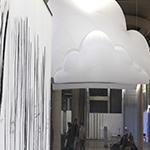Euroacademia Conferences
 Europe Inside-Out: Europe and Europeanness Exposed to Plural Observers (9th Edition) April 24 - 25, 2020
Europe Inside-Out: Europe and Europeanness Exposed to Plural Observers (9th Edition) April 24 - 25, 2020 Identities and Identifications: Politicized Uses of Collective Identities (9th Edition) June 12 - 13, 2020
Identities and Identifications: Politicized Uses of Collective Identities (9th Edition) June 12 - 13, 2020 8th Forum of Critical Studies: Asking Big Questions Again January 24 - 25, 2020
8th Forum of Critical Studies: Asking Big Questions Again January 24 - 25, 2020 Re-Inventing Eastern Europe (7th Edition) December 13 - 14, 2019
Re-Inventing Eastern Europe (7th Edition) December 13 - 14, 2019 The European Union and the Politicization of Europe (8th Edition) October 25 - 26, 2019
The European Union and the Politicization of Europe (8th Edition) October 25 - 26, 2019 Identities and Identifications: Politicized Uses of Collective Identities (8th Edition) June 28 - 29, 2019
Identities and Identifications: Politicized Uses of Collective Identities (8th Edition) June 28 - 29, 2019 The European Union and the Politicization of Europe (7th Edition) January 25 - 26, 2019
The European Union and the Politicization of Europe (7th Edition) January 25 - 26, 2019 7th Forum of Critical Studies: Asking Big Questions Again November 23 - 24, 2018
7th Forum of Critical Studies: Asking Big Questions Again November 23 - 24, 2018 Europe Inside-Out: Europe and Europeanness Exposed to Plural Observers (8th Edition) September 28 - 30, 2018
Europe Inside-Out: Europe and Europeanness Exposed to Plural Observers (8th Edition) September 28 - 30, 2018 Identities and Identifications: Politicized Uses of Collective Identities (7th Edition) June 14 - 15, 2018
Identities and Identifications: Politicized Uses of Collective Identities (7th Edition) June 14 - 15, 2018
Narrating Europe from the Outside – The Double Peripheral Perspective in Abraham B. Yehoshua’s Novel Five Seasons
-
-

-
Presentation speakers
- Judith Müller, Ben Gurion University of the Negev, Israel
- Download presentation
Abstract:
In recent months, two new video clips relating Israel and Europe could be found on the internet: one promoting a shopping center in Tel Aviv and proclaiming that “Europe is here” and on the opposite a new pop song by Doron Madali (lyrics and music) stating that “This is not Europe, here is Balagan [meaning chaos or confusion in Hebrew]”. These simplifying and rather contrasting statements show how difficult and complex the “European issue” is for the identity of Israelis, the Israeli society and its search for a place in the non-European Middle East. In my paper I will exemplify this complexity based on the novel Five Seasons (Molcho) by Abraham B. Yehoshua. The reading of Molcho’s voyages to Europe and his struggle with “European culture” in Israel will enable me to analyze Molcho’s perception of Europe. The novel reflects tow diverging images that are common not only among Israelis, but in the European discourse as well: the nostalgic image that we know for example from the first chapters of Stefan Zweig’s autobiography The World of Yesterday and the image of destruction, decline and death that came over Europe during the two World Wars and the Holocaust. I will argue that Europe is presented as a cultural space represented by classical music, mostly opera. This cultural space is not limited to the geographical borders of the European continent; but since Molcho´s ancestors did not come from Europe he does not even fully belong to the European space within Israel and remains in some way or another a double outsider. Thus I will call his perspective a double peripheral one.
-
Related Presentations


















